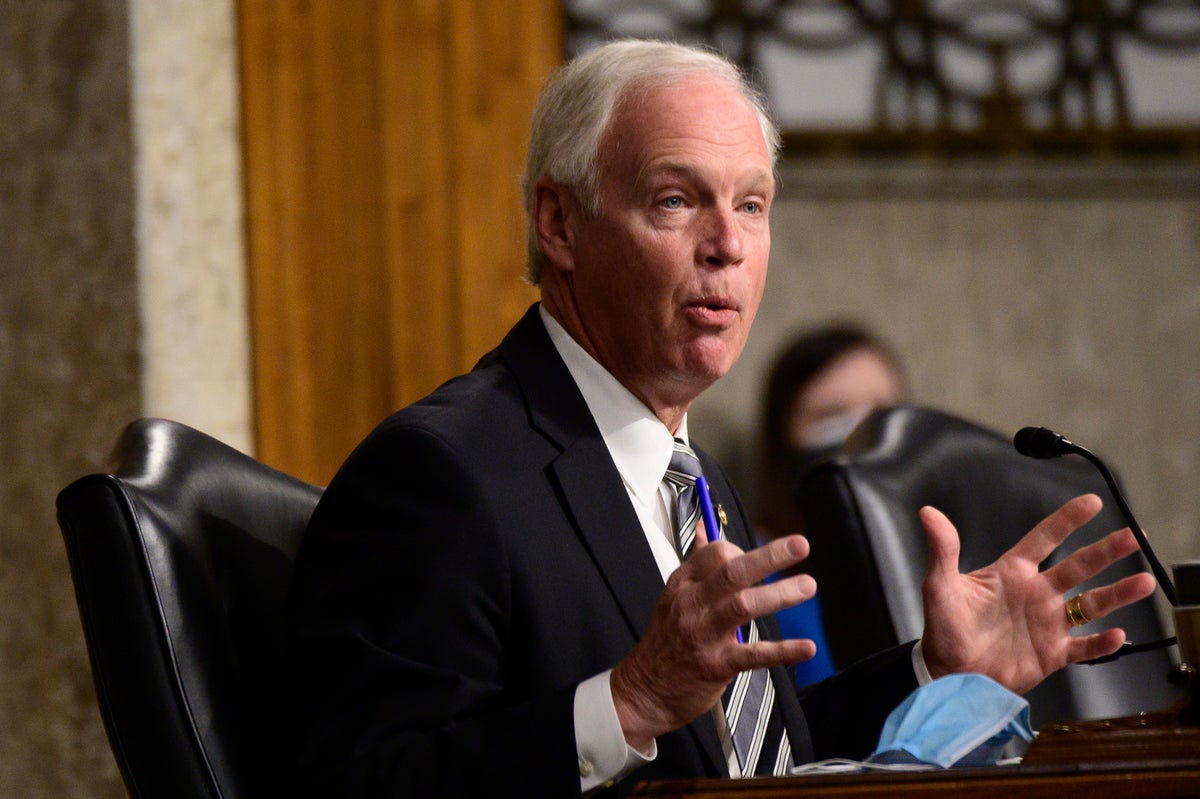
Republican Senator Ron Johnson says he is looking forward to the civilization-shifting impacts of the climate crisis because he is from Wisconsin, and it is cold there.
Mr Johnson made his comments during a Senate Budget Committee meeting on Wednesday.
During the meeting, Mr Johnson questioned Dr Michael Greenstone, a professor of economics at the University of Chicago, about the conclusions drawn in one of his recently co-authored studies. After reviewing the study, Mr Johnson concluded that Americans should "take comfort" in global warming.
The study was published in the Quarterly Journal of Economics, and focused on the economic impact that the climate crisis is poised to have across the globe. That includes a projected 85 excess global deaths per 100,000 people every year by 2100. In the US, the country would "incur adaptation costs" that would result in 10 death equivalents per 100,000 people, ultimately there would be 0.2 fewer overall US deaths per 100,000 people by 2100.
In other words, the US will not be hit as hard by the climate crisis as other parts of the world, despite its role in helping to drive the effect.
Mr Johnson initially said he did not "put any stock" in the projections laid out in the study, and then praised the fact that the climate crisis looked "pretty good" for Americans, noting that it would make his home state of Wisconsin warmer.
"In terms of excess deaths, a warming globe's actually beneficial," the senator said. "In my own state, your study shows that we would have a reduction in mortality of somewhere between 54 and 56 people per, I guess, it's 100,000. Why wouldn't we take comfort in that?"
Mr Greenstone noted that the effects of the climate crisis were going to be "very unequal" — some areas will experience significantly more hardship than others.
"Absolutely, [in] Wisconsin, Chicago, where I live, the reduction in cold days, the benefits from that will outweigh the damages from the hot days," Mr Greenstone said. "But if you look more carefully at that, there's large swatches of the country where the damages will be much larger."
Mr Johnson cut him off before he could continue, and brought up an unrelated study and argued that global heating would help prevent excess deaths.
"In terms of global health, in terms of excess death, we're actually in a better position to prevent death by having the climate increase in temperature a little bit," he said.
Mr Greenstone said the senator's characterisation of his study was "incorrect," to which Mr Johnson again insisted the climate crisis would be "very favourable to my state."
Commenters on social media were blown away by Mr Johnson’s seeming inability to grasp the point the professor was trying to make.
The professor again tried to explain why discussions around the climate crisis had to involve more than just Wisconsin having a more mild winter.
"Wisconsin will benefit in terms of mortality," Mr Greenstone replied. "There are 49 other states in the United States. Many of them will suffer. Many of them will suffer more than Wisconsin will gain. And that is the nature of climate change, it's very unequal."
Mr Johnson again insisted that the Us would be "in pretty good shape," and that people who like "in the really hot region of Africa" would be the ones that should be concerned.
While the study did note the unequal application of stress across the world, it determined that the climate crisis would result in approximately 6.8 million more annual deaths.







